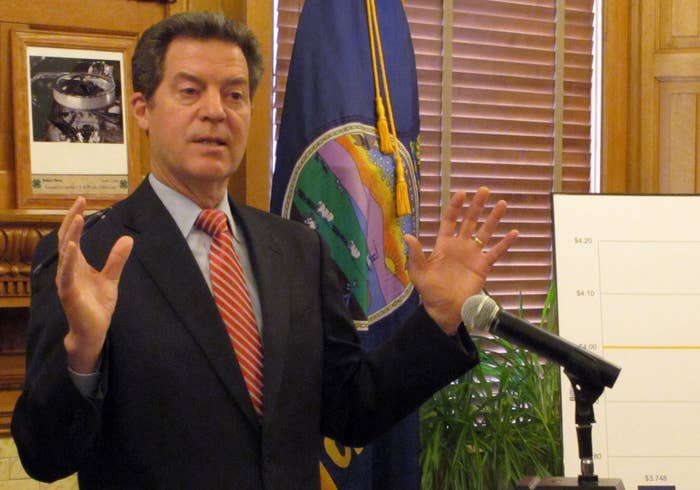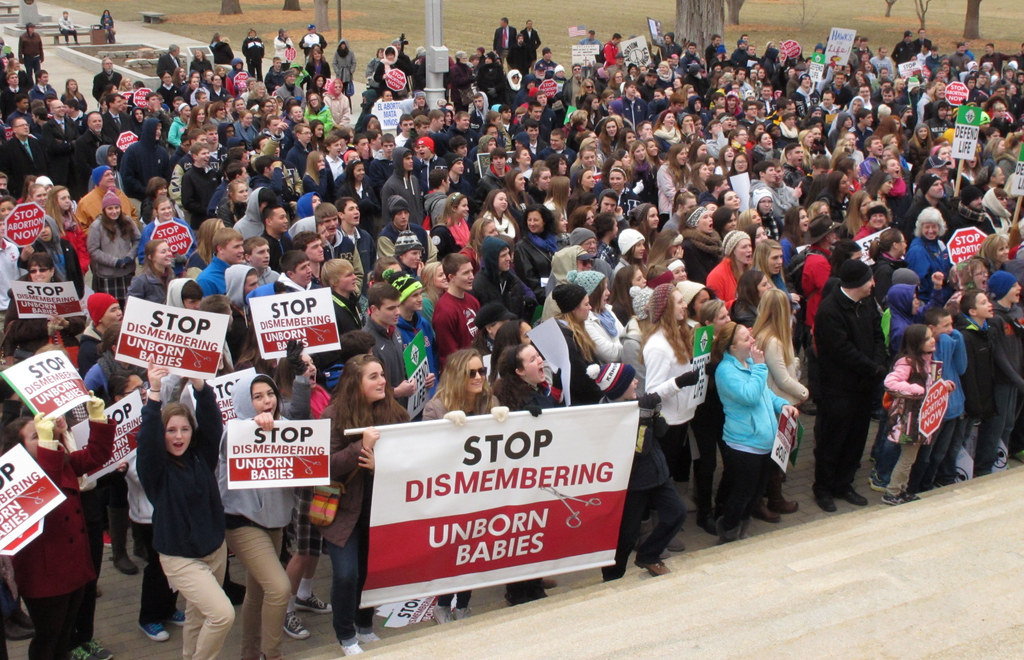
Kansas Gov. Sam Brownback, a Republican and strong abortion opponent, signed the nation's first ever ban on second-trimester abortion procedures Tuesday.
Brownback and other lawmakers have said the law will prevent "dismemberment abortions" and hopefully act as a catalyst for similar legislation across the U.S. Bills outlawing second-trimester abortions have already been introduced in Missouri, Oklahoma, and South Carolina.
Under the Kansas law, the procedure is banned except when necessary to save a woman's life or prevent irreversible damage to her physical health. Otherwise, doctors cannot use forceps, clamps, scissors, or similar instruments on a fetus to remove the baby from the womb in pieces, the Associated Press reported.
The new law goes into effect July 1, but already, Trust Women and Planned Parenthood of Kansas and Mid-Missouri — two abortion rights groups that operate abortion services clinics — were threatening to challenge the ban in court.
The procedure is used in roughly 8% of abortions nationwide, with the vast majority taking place in the first trimester.
Proud to sign SB95 protecting life at its most vulnerable stage with bipartisan support from #ksleg.
Brownback signed the bill at a private early morning ceremony, with his office tweeting a picture of him flanked by anti-abortion activists and two large photos of fetuses. More public signing reenactments were reportedly planned for later this month.
The measure was just the latest in a ongoing campaign by Kansas lawmakers to restrict access to abortions. Already, women must wait 24 hours after receiving state-directed counseling that includes information designed to discourage an abortion before getting the procedure done.
According to the Guttmacher Institute — a right to abortion research group that both sides cite — the Republican-led legislature has passed more than 20 measures imposing restrictions on the abortion since Brownback's election in 2011, Reuters reported.

The latest restriction signed into law on Tuesday could still be challenged in court.
Anti-abortion groups, though, have said they are confident the new law would withstand a legal challenge based on a 2007 Supreme Court ruling upholding a federal ban on so-called "partial-birth abortion."
But Widener University law professor John Culhane told the AP that the court's 5-4 majority rejected an argument that the federal law would have banned the more common dilation and evacuation procedure described by the Kansas law.
"If it was so obvious that it wouldn't run afoul of the court, you would have seen a law like this sooner," he said.
